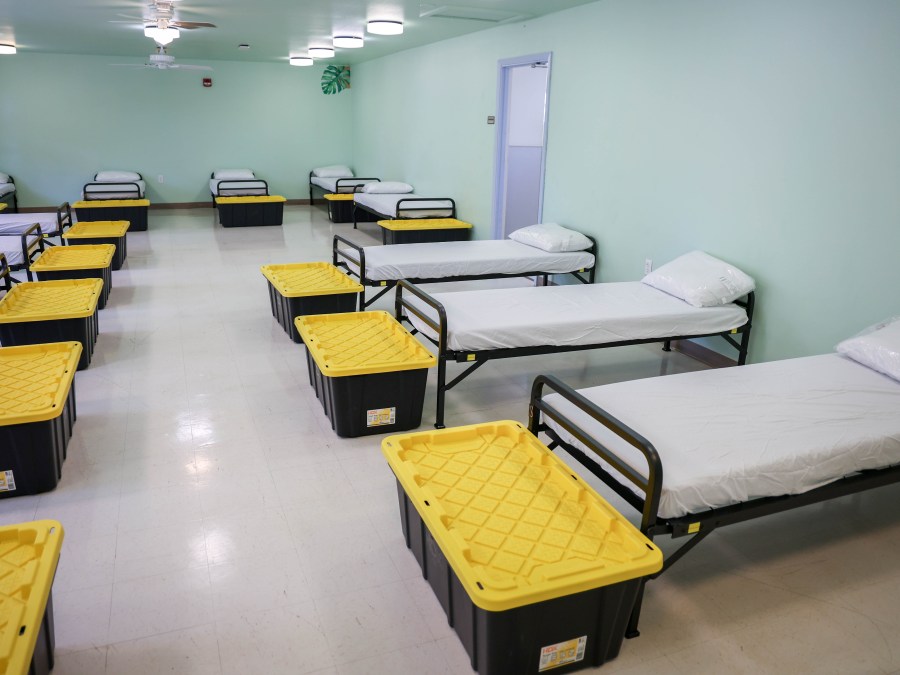This article was originally published in CT Mirror.
Teacher unions across the state are using votes of no confidence in their superintendents — both formal and informal — to demonstrate growing dissatisfaction with leadership they argue is becoming more uncommunicative, inexperienced or out of touch with staff.
Since March, votes have taken place in four school districts — Waterbury, Stamford, Bridgeport and the Connecticut Technical Education and Career System. The Salem Teachers Federation, which issued its own vote of no confidence in May 2023, also has an ongoing conflict with its administration.
The uptick in votes of no confidence is “not normal,” said Fran Rabinowitz, who previously served as superintendent in Bridgeport and Hamden and now is executive director of the Connecticut Association of Public School Superintendents. She said it’s becoming a growing trend across the country.
Education is at a Crossroads: Help Us Illuminate the Path Forward. Donate to The 74
“I think it’s become more common nationally to have votes of no confidence,” Rabinowitz said. “There’s a lot of emotional unrest right now… I see opposing views and an inability, many times, to come to the middle, to come to consensus, to really understand the other person’s perspective moving forward with something. And I think it affects all of our relationships. You just see it nationally. You see it in government, and I think now we’re seeing it in education.”
Educators have consistently referred to public education as reaching a “breaking point,” with an increasing frustration in classroom conditions centered on issues like safety, workload, class sizes, limited support personnel and curriculum changes.
A survey released recently by the Connecticut Education Association, the state’s largest teachers union, shows that 63% of educators in the state are dissatisfied with school conditions and 62% are planning to leave the profession earlier than expected.
Still, CEA President Kate Dias said that votes of no confidence show “an incredible amount of investment.” She said educators who could have walked away are instead “insisting on better.”
“We are going to hold you accountable for doing what we know you should be doing,” Dias said. “The invested parties are standing up and making demands of leadership, and that means that we’re really focusing on improvement. We’re focusing on how do we do this work better and treat our communities and students better.”
Despite the unique district circumstances that led to the votes of no confidence, interviews with union presidents show similar underlying issues — ranging from severe disconnects in communication, concerns about transparency when it comes to district changes (like scheduling or curriculum), growing fears of retaliation and a general feeling that their concerns have gone unheard.
Even some unions across the state that did not issue votes of no confidence in their superintendents have conducted surveys or organized other efforts to showcase their continued dissatisfaction.
“If you look at sort of the consistent theme of where these situations emerge, it’s often where there’s a breakdown of communication and respect between staff and administration — particularly the superintendent,” Dias said, adding that though a consistent call to action to improve the teaching profession has been rooted in salary increases, “there’s no amount of money that overcomes rampant disrespect.
“It takes time to change and move salaries. It does not take time to improve the working conditions,” Dias said. “You can decide tomorrow, ‘I really need to listen to my staff. How am I going to do that in a way that they can see it, feel it and know that I’m respecting them?’”
Rabinowitz also stressed the importance of relationship building and balancing teacher involvement.
“Sometimes superintendents see what is lacking and they see it very clearly … and they just want to take care of that really quickly,” Rabinowitz said. “What they don’t realize is, you can’t just plow ahead without getting buy-in from the pioneers — the teachers and the administrators who are going to carry out what you want to carry out. You’ve got to sit down with them and listen to their perspective and figure out whether the direction you’re taking is the right direction.”
One proposal some educators and union leaders think could make a difference is changing the minimum requirements for becoming a school administrator, in particular the number of years of experience in a classroom setting. It’s a measure they plan to bring up during the legislative session that begins next month.
Departures
In some districts, conversations between superintendents and staff either did not take place or were not fruitful enough to make a difference before the superintendents were either replaced or took a leave of absence.
In Waterbury, CTECS and Bridgeport, the unions’ votes have been followed by changes to the district leadership.
Back in March, the Waterbury Teachers Association conducted a survey with over 700 participants that mainly focused on safety concerns in the classroom. The majority of the survey’s respondents said Superintendent Verna Ruffin did not effectively address safety-related issues (80%), did not foster an environment for staff to handle discipline issues in an effective manner (86%) and did not prioritize teacher and student safety (85%).
“We just felt that Dr. Ruffin had really lost touch with the teacher corps in the city of Waterbury, and had really, really lost touch with the types of things that teachers were experiencing in the classroom,” said local union president Kevin Egan. “Those types of things ranged from a lack of support, which was the big one, especially in types of discipline issues and addressing negative behaviors in the classroom, where teachers were really starting to feel afraid and nervous to go to work.”
There were over 960 individual student-based arrests in Connecticut in 2021-22, the last reported data from the state’s education department that was broken down by district. Of that number, about 220 occurred in Waterbury Public Schools.
The unions’ concerns “arguably ended up” as a vote of no confidence, though it was not “officially designated,” as one, Egan said.
“What you’re seeing across the state is a byproduct of lack of respect and just the idea that they’re not valuing their teachers and teachers are feeling it,” Egan said. “When you’re trying to get responses from the superintendent, and teachers are throwing their hands up in the end and screaming for help, and nobody’s coming to the aid, … that is the definition of a breaking point.”
Waterbury Mayor Paul Pernerewski ultimately vetoed Ruffin’s contract extension despite an initial approval from the local board of education.
Ruffin did not respond to a request for comment on the local union’s dissatisfaction, but provided The Connecticut Mirror her final email to the local board of education. In her correspondence, she highlighted wins in her district including the opening of a dual language school, reopening of classrooms after the COVID-19 pandemic and investments into extracurricular programs.
“As I move to my next chapter, I wanted to express my profound gratitude to you Commissioners individually, and collectively as you continue to do what’s best for all children,” Ruffin wrote on July 11. “Your confidence in me is deeply appreciated and I will forever be grateful to you to the teachers, the principals and administrators as well as the central office team, the parents, students and community. I will especially miss the students and wish them continued success as they dare to dream big and never lose sight of their goals.”
Several months later, in October, the State Vocational Federation of Teachers, the union representing certified teachers at the Connecticut Technical Education and Career System, issued its own vote of no confidence in executive director Ellen Solek after concerns over transparency.
Solek oversaw the superintendent position, which has had several personnel changes in recent years as the CTEC system has branched off the jurisdiction of the state Department of Education and instead operates as a state agency.
Makenzi Hurtado, vice president of the SVFT union, said Solek was responsible for the system’s finances, legislative proposals and industry partnerships. Union members felt the needs were not being met in those three areas and this ultimately “trickled down into the classrooms.”
“We would hear that all the time we’re in a ‘soft [hiring] freeze,’ … but no one really understood why we were in a soft freeze, where the monies were going and when we would ask for clarification or insight or transparency, we would not get any answers,” Hurtado said. “In terms of the legislation, there’s a lot of things that we have to advocate for. … There’s a lot of different bills and things that affect us, and we weren’t finding out about it until after they were going into effect.”
Hurtado said the CTECS had a large number of staffing vacancies, which overwhelmed the existing workload of hired staff and made them more prone to burnout.
“Every single subject we had, they were missing things that they needed. Science labs didn’t have the materials that they needed. English classrooms didn’t have the books. It was everywhere,” Hurtado said.
“It got to a point where people were feeling like they could not give kids the education that they deserved, and they didn’t have the resources to give the education to kids that they deserved, and that was really the breaking point for us,” Hurtado added. “I think a lot of the concerns that we have in our district are very similar to concerns that teachers and other districts have. Teachers are extremely passionate about what they do, but … they’re very rarely listened to as experts in what they do.”
Solek, who was the district’s first executive director and took over the role in June 2023, announced her plan to resign on Halloween.
Solek declined a request for comment.
Gov. Ned Lamont announced Alice Pritchard, who most recently served as the director of workforce development and strategic initiatives for the Connecticut Department of Administrative Services and previously served as the chief of staff and chief strategy officer for the Connecticut State Colleges and Universities system, as Solek’s replacement on Nov. 27.
In a statement to the CT Mirror, Pritchard said she looked forward to working with stakeholders to “help the system reach its full potential.”
“My priority is to listen to our community, promote open communication, and ensure transparency and collaboration with all stakeholders. I recognize that while there is important work to do, we have the people and passion to achieve great things on behalf of CTECS students,” Pritchard said.
The CTEC is also under investigation by the state Department of Education after a leaked email from then-interim superintendent Justin Lowe described a process that was apparently meant to deny admission to students with disabilities.
Lamont appointed Freeman Burr, a former superintendent in Shelton and former Hartford educator, as the new interim superintendent on Dec. 5.
Still at odds
Bridgeport was the most recent of the three no-confidence votes, with Superintendent Carmela Levy-David taking a leave of absence in early November shortly after a CEA survey revealed 93% of respondents felt Levy-David was unprofessional in dealings with teachers and staff, feared retaliation if they voiced concerns and that the superintendent was not open to differing points of view and 80% had considered leaving Bridgeport Public Schools.
Levy-David was hired in August 2023 and committed to staying 10 years in the district to form a “new era of stability.” She had announced a complete system overhaul earlier this year, beginning with right-sizing its organizational leadership, schools and classrooms.
Over the summer there was pushback on the superintendent’s plan to close six schools, and contention grew as educators say the district was changing its class and bus schedules, teacher assignments and curriculum “on the fly.”
“You had teachers doing everything in their power to try and create a sense of stability and security, but at the end of the day, if they don’t have the materials, they’re being reassigned, they are not sure what is being communicated — all those things put together just created this sense of heightened agitation at all times,” Dias said. “It was like this intense layer of stress that everyone was kind of experiencing, including the kids.”
Shortly after the survey’s results were released, the district issued a statement saying they were “disappointed that the CEA did not communicate those results to us first so we could have worked collaboratively,” and that they took the “concerns raised about teachers’ confidence in our leadership seriously.”
“We understand that feelings of fear and apprehension can significantly impact our staff’s willingness to communicate openly, but their feedback is essential to continue to make things better for them moving forward. We are committed to fostering a safe and supportive environment where educators feel empowered to express their thoughts and concerns without fear of retaliation,” Levy-David said in the statement.
Bridgeport’s local board of education has now entered contract negotiations that could end Levy-David’s employment in the district.
Stacy Graham-Hunt, the spokesperson for Bridgeport schools, said the district “remains committed to fostering a positive and collaborative work environment for all staff members,” through efforts to “streamline communications, enhance stability and address any operational challenges to ensure that schools run smoothly and effectively.”
“While the District acknowledges the concerns raised by the union, we are assessing areas for improvement and identifying strategies to address challenges. Ensuring a supportive environment for educators, administrators, and students is our top priority,” Graham-Hunt said. “We are currently reviewing internal processes to enhance clarity and coordination, and we are prioritizing efforts to ensure all stakeholders feel informed and supported.”
Stamford shared concerns similar to some of those raised in Bridgeport’s survey and vote of no confidence, though the district has kept its leadership.
Stamford educators have faced an ongoing challenge regarding class scheduling at its middle and high schools.
Stamford Superintendent Tamu Lucero proposed a schedule change that would add an extra course to teachers’ existing class schedules and would increase workload. Local teachers argued that they’re already strained and issued a vote of no confidence in March.
“Who knows what’s going on in the classroom better than the teachers that work with those kids every day?” said local union president John Corcoran. “The further you are removed from the classroom, the less impact you have. There’s a superintendent, and there’s associate superintendents, but you’re making decisions three levels removed from the classroom. … [To make changes,] it’s about building relationships. It’s about maintaining relationships. It’s about trust. … We’re trying hard to build that relationship with the superintendent, but we run into quite a lot of hurdles in doing so.”
Stamford Public Schools did not respond to a request for comment.
A legislative push
At the root of teachers feeling unheard is a sentiment that district administrators are inexperienced when it comes to what’s happening in a classroom setting.
Currently, state law requires school administrators to have at least 50 months of “appropriate teaching experience,” or about five years, a master’s degree and additional coursework in special education, school administration and other topics.
But several educators and union leaders across the state have advocated for several years to raise the minimum requirements, particularly in regard to the number of years in a classroom setting.
It’s a proposal they plan to fight for again in January.
“We believe 10 years would be a far better minimum, and I get that it puts that point of transition out a little bit, but let’s give our administrators a fighting chance. If they haven’t had enough experiences to convincingly lead, we’re setting them up for failure,” Dias said.
“We really believe that in order to lead a building, you have to have a credible amount of experience, and you have to have had the worst day, the most challenging student, a difficult parent conversation, a challenge with your colleague, to have led a classroom through difficult times, before you’re ever going to be able to lead a building credibly,” she said.
This article first appeared on CT Mirror and is republished here under a Creative Commons license.

#Connecticut #Teachers #Issuing #Votes #Confidence #Superintendents











Leave a Reply